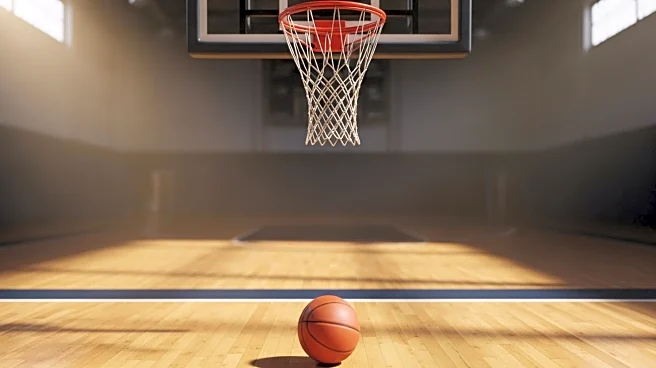What's Happening?
Florida has officially restored the college statistics of Vernon Maxwell, a former basketball player, making him the program's all-time leading scorer once again. Athletic director Scott Stricklin advocated for the reinstatement of Maxwell's stats, which were removed four decades ago due to an NCAA investigation. Maxwell, who played for the University of Florida from 1985 to 1989, scored 2,450 points during his college career. His achievements include leading the Gators to their first NCAA Tournament appearance and advancing to the Sweet 16 in 1987. The restoration of his stats comes as Maxwell, now 60, prepares to celebrate the decision with friends, family, and former teammates during a program reunion.
Why It's Important?
The restoration of Vernon Maxwell's college statistics is significant as it corrects historical records and acknowledges his contributions to the University of Florida's basketball program. This decision not only reinstates Maxwell as the program's leading scorer but also highlights the importance of preserving sports history accurately. It serves as a reminder of the impact of NCAA investigations on athletes' legacies and the potential for rectification. Maxwell's reinstatement may inspire other institutions to review similar cases, ensuring that athletes' achievements are rightfully recognized.
What's Next?
Maxwell's reinstatement is expected to be celebrated during a program reunion, where he will be joined by friends, family, and former teammates. This event may serve as an opportunity for the University of Florida to further honor Maxwell's legacy and contributions to the basketball program. Additionally, the decision could prompt discussions within the NCAA and other universities about reviewing past cases where athletes' records were affected by investigations, potentially leading to more restorations.
Beyond the Headlines
The restoration of Maxwell's stats raises questions about the ethical considerations in sports record-keeping and the long-term impact of NCAA investigations on athletes' careers. It highlights the need for transparency and fairness in handling historical records, ensuring that athletes' achievements are preserved accurately. This development may also influence cultural perceptions of sports legacies, emphasizing the importance of acknowledging and correcting past injustices.









